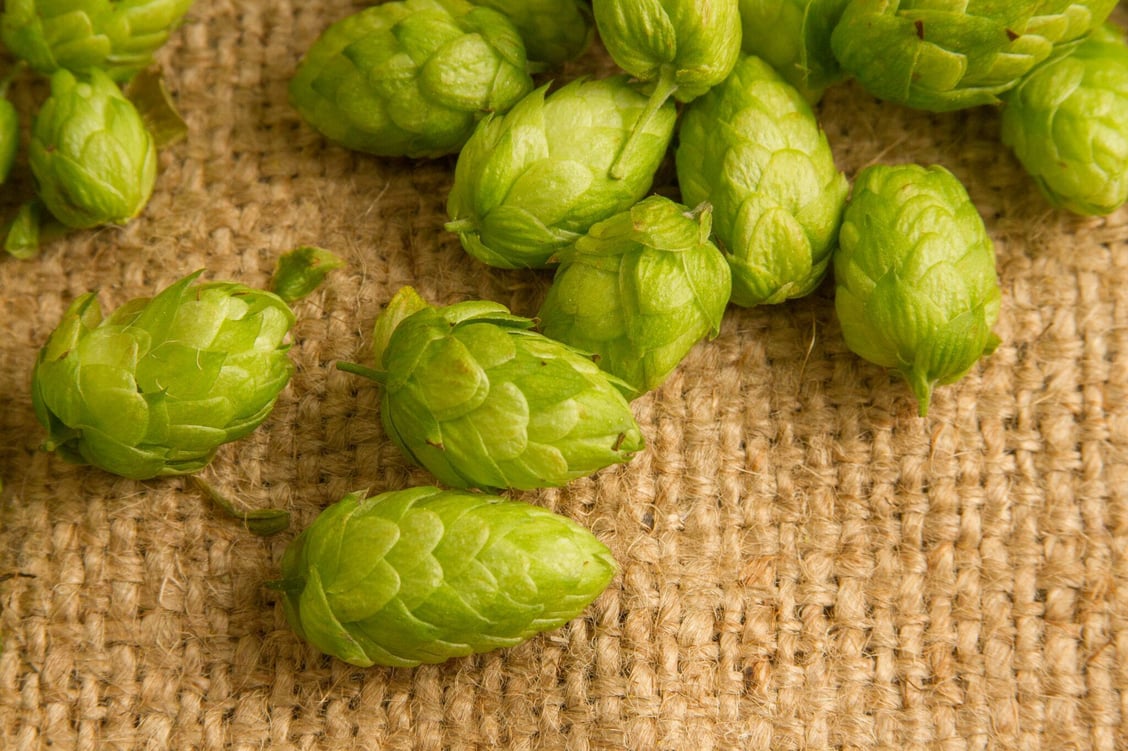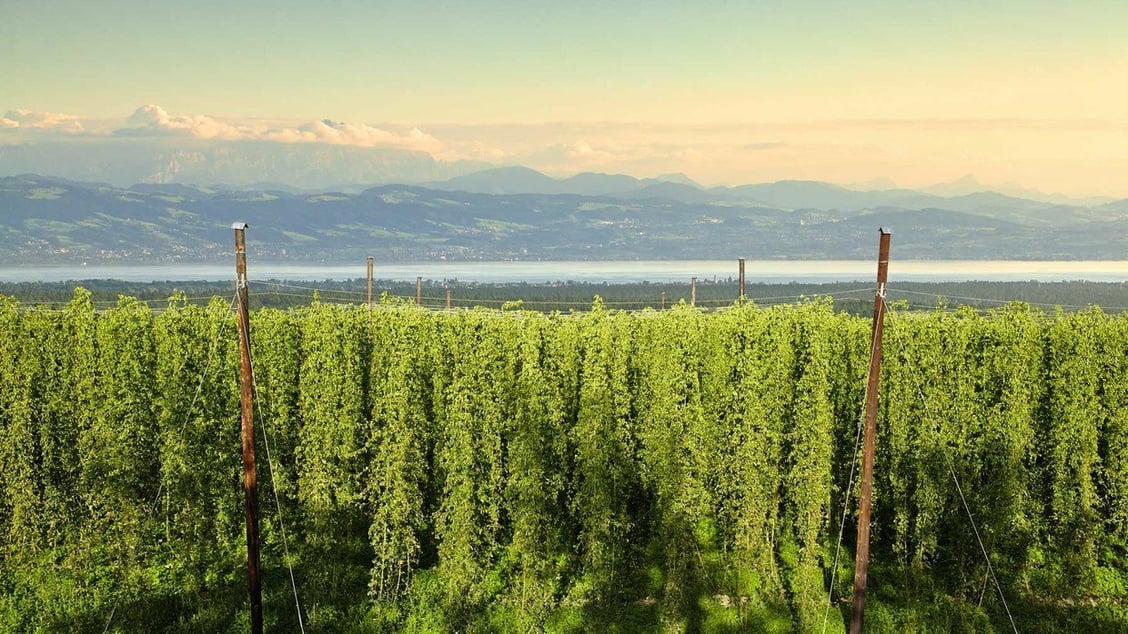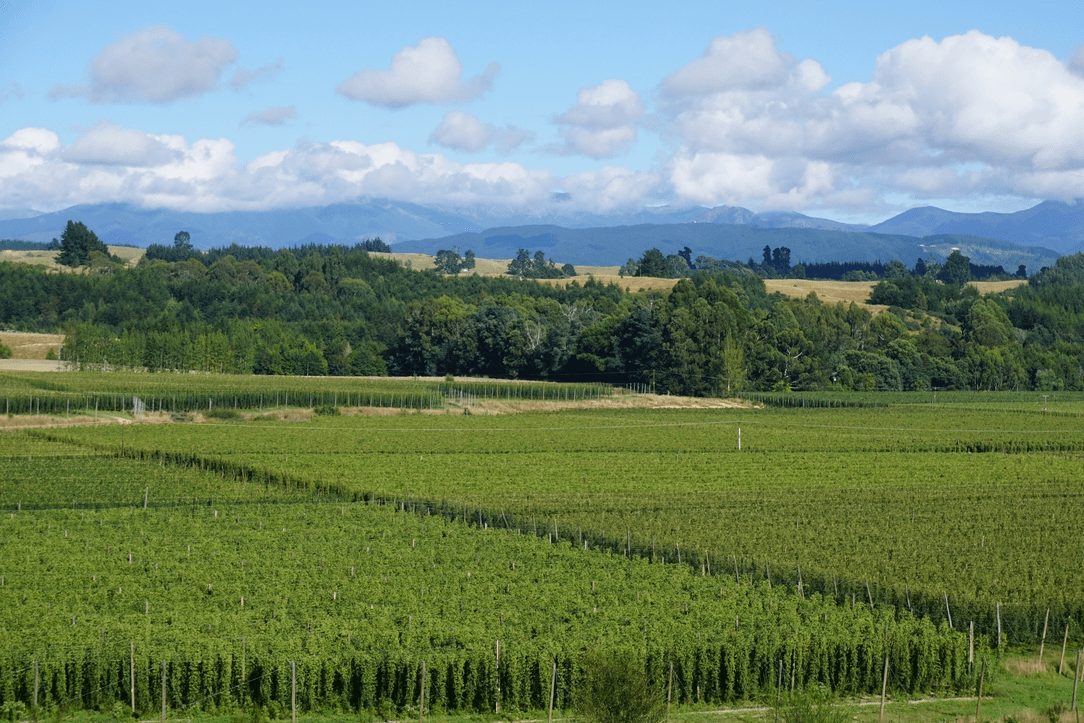Q&A with Blake Crosby
2018 Ground Report: Collaborating Growers

Crosby Hop Farm has been farming its estate- grown hops for more than 100 years. But in order for the family-run Oregon operation to offer more than 80 varieties of hops for sale and keep up with craft brewers’ insatiable demand for crucial beer brewing supplies, Crosby has also collaborated with other quality hop growers from around the world since 2012. Here, CEO Blake Crosby explains the collaborating grower program.
Who are Crosby’s collaborating growers?
We have several collaborators geographically close to us in Oregon, Washington, and Idaho, including Jackson Hop, with whom we brought the Idaho 7™ hop variety to market in 2015, Virgil Gamache Farms with whom we license and grow Amarillo®, and CLS Farms who developed the El Dorado® hop - among many other great growers we are proud to call friends and part of the CHF hop family in the Pacific Northwest.
We also have strong global relationships with many quality suppliers. For many customers a wide array of quality traditional European hops, like Czech Saaz and German noble hops is important for European inspired beers. We work closely with our growers like Lukas Locher in the Tettnang region of Germany to import the best hops possible. On the more exotic side of things we also have an exciting new international collaborating grower in New Zealand’s Freestyle Hops. That relationship came to fruition more formally in the last year, but was the culmination of a lot of conversations started several years ago.
Hopfengut No. 20 - Tettnang, Germany

Freestyle Farms - Upper Moutere, New Zealand

How do you choose your growers?
We ideally want a diverse group of collaborating growers, but shared values and cultural fit are always front of mind, so we seek out growers that are aligned in terms of quality, consistency, and reliability. We choose growers with food safety standards, high-quality facilities, good agricultural processes and most importantly those that are also good stewards of the land.
Site visits are critically important. We have several farms we work with on large volumes where we go into their operations during harvest and hand select our hops for the year. This makes us confident that we’re acquiring the absolute best hops possible on behalf of our customers for the season.
Is high demand complicating things for hop growers and suppliers?
Short-term, it’s making things easier. One common headline right now is hops are oversupplied, but obviously it’s not as simple as “all hop varieties are oversupplied.” The market is increasingly nuanced by variety.
Right now there’s a surplus of Cascade and Centennial, for example, and increased availability of previously hard to get hops like Citra® and Mosaic®. The silver lining is that brewers in emerging markets now have a chance to make great beers with these hops that they could not previously access. Because of that demand and the increased availability of raw ingredients, we’ll see the craft market growth continue to accelerate globally. Although extra hops in the domestic market may seem like a liability for some in the short term, ultimately some of these surpluses hopefully help build sustaining demand outside of the U.S. that previously did not exist.
Come back next month for more updates and behind-the-scenes insight into Crosby Hop Farm’s operations, and in the meantime check out previous Beyond the Box Q&As with Blake Crosby!